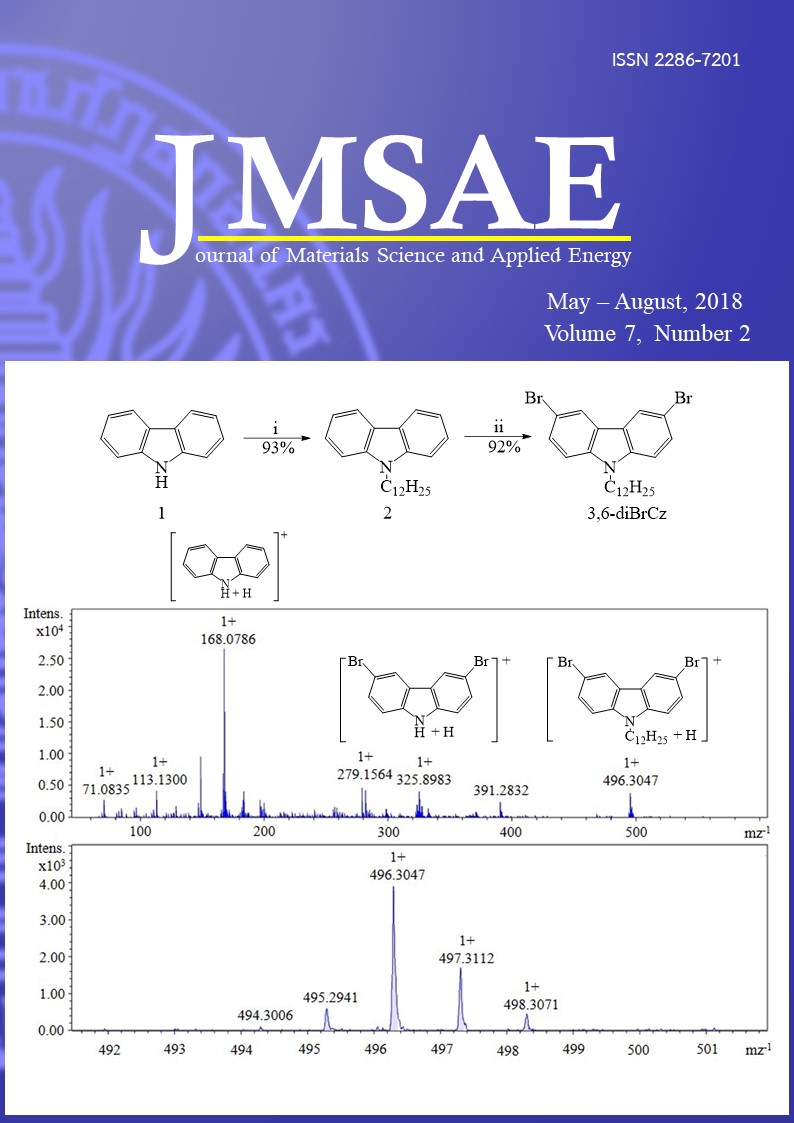Production of Biodiesel from Palm Oil Using Catalysts Derived from Local Shells in Loei Province
DOI:
https://doi.org/10.55674/ias.v7i2.115826Keywords:
biodiesel, trans-esterification reaction, calcium oxide Local shellsAbstract
This research studied the use of synthetic calcium oxide derived from shells (Scabies phaselus, Chamberlainia hainesiana and Corbicula javanica) as a catalyst for producing biodiesel from palm oil. When shells are calcined, calcium carbonate changed to calcium oxide, which is an effective for the trans-esterification of palm oil. The temperature of calcination of the shells was 900 °C for 4 hours. The molar ratio of methanol to oil was 9:1 for this reaction and the optimum reaction time and temperature were 60 °C for 30 minutes, When the catalyst level from big shells (Chamberlainia hainesiana) was at about 2, biodiesel yield was 56 ml, or 78.32 of the 71.50 ml of palm oil mixed with methanol to 100 ml, This was the optimum due to the density value being in the ASTM D 1298 standard range of 860 to 900 kg m-3 and the viscosity value being in the ASTM D 445 range of 3.50 to 5.00 cSt. The biodiesel obtained was transparent. Other results were that, when the catalyst level from Scabies phaselus shells was about at 2.50, the biodiesel yield was 52.83 ml, or 73.89 and when the Corbicula javanica shell catalyst level was at 2, the biodiesel yield was 49.33 ml, or 69.








